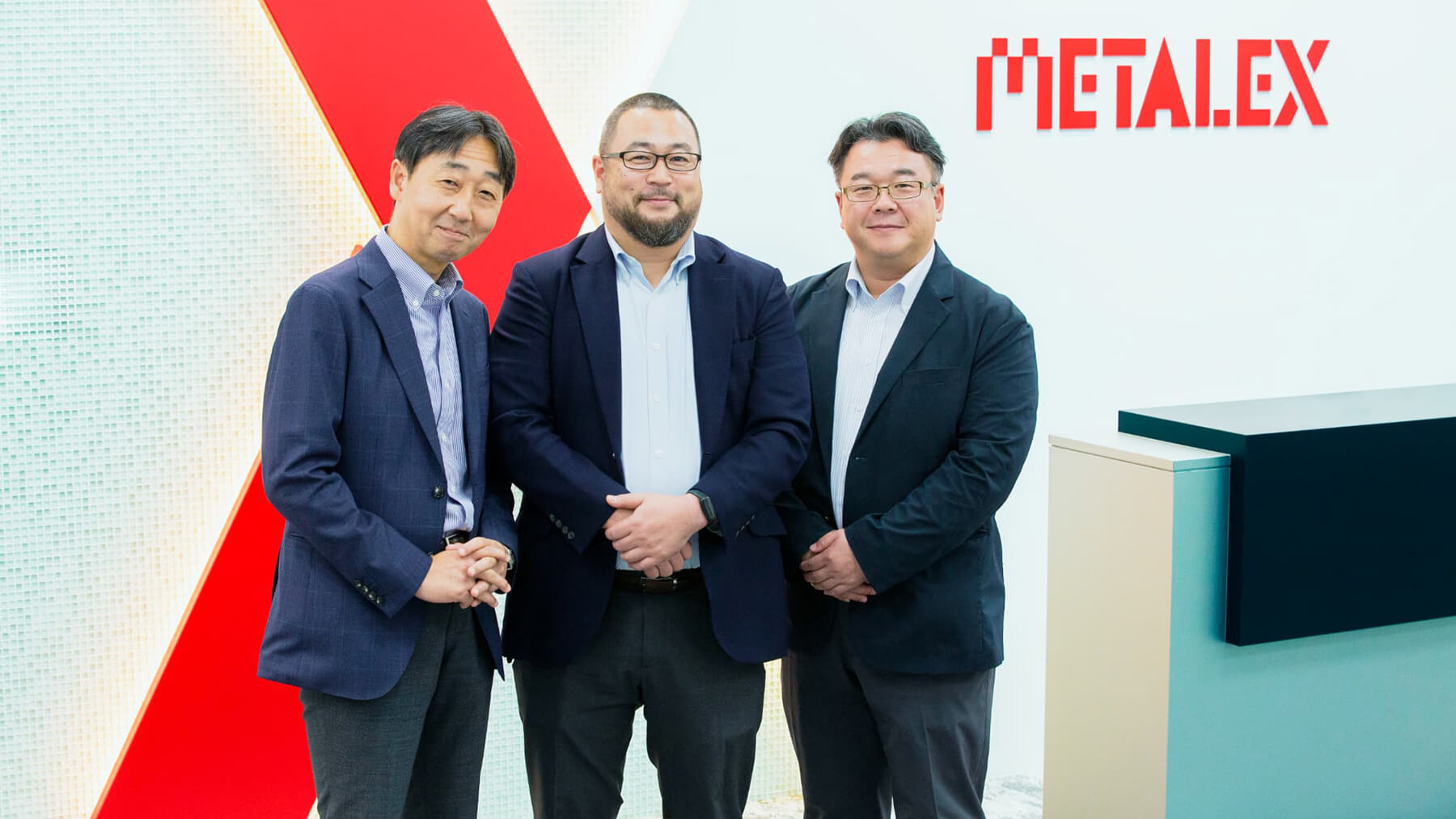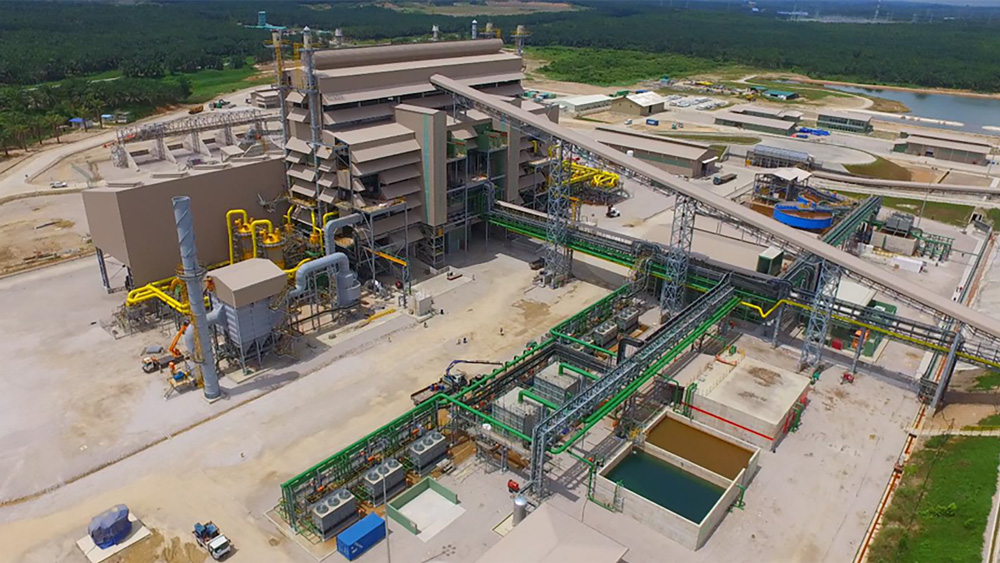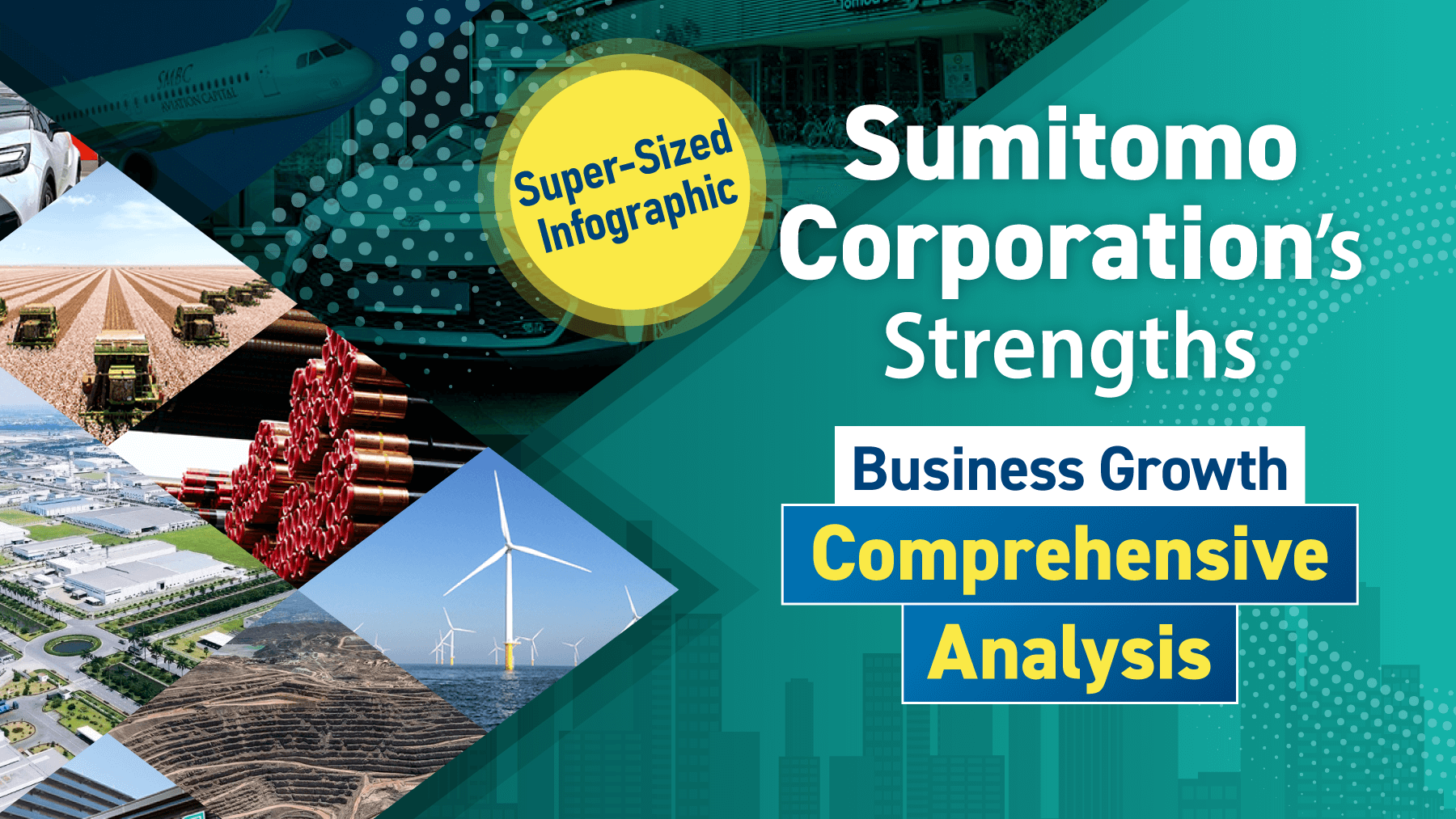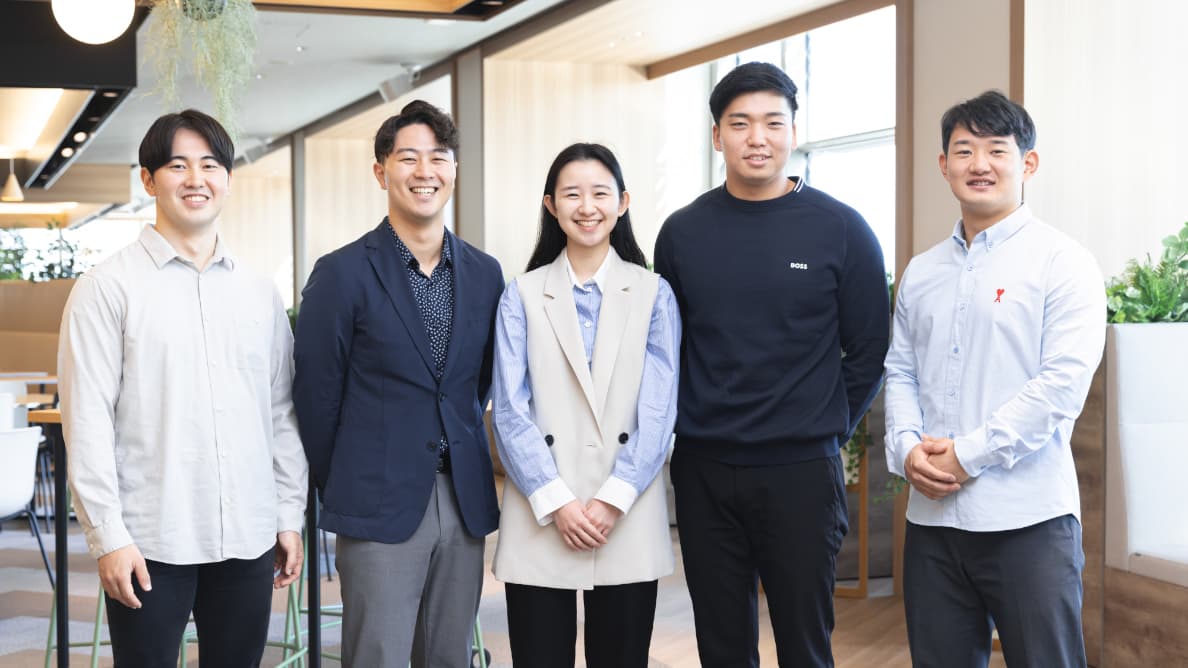
- TOP
- Enriching+TOP
- World Biz+ Africa: Sumitomo Corporation Employees Overseas Contribute to Nation Building With a Multinational Team
2024.2.29
Business
World Biz+ Africa: Sumitomo Corporation Employees Overseas Contribute to Nation Building With a Multinational Team
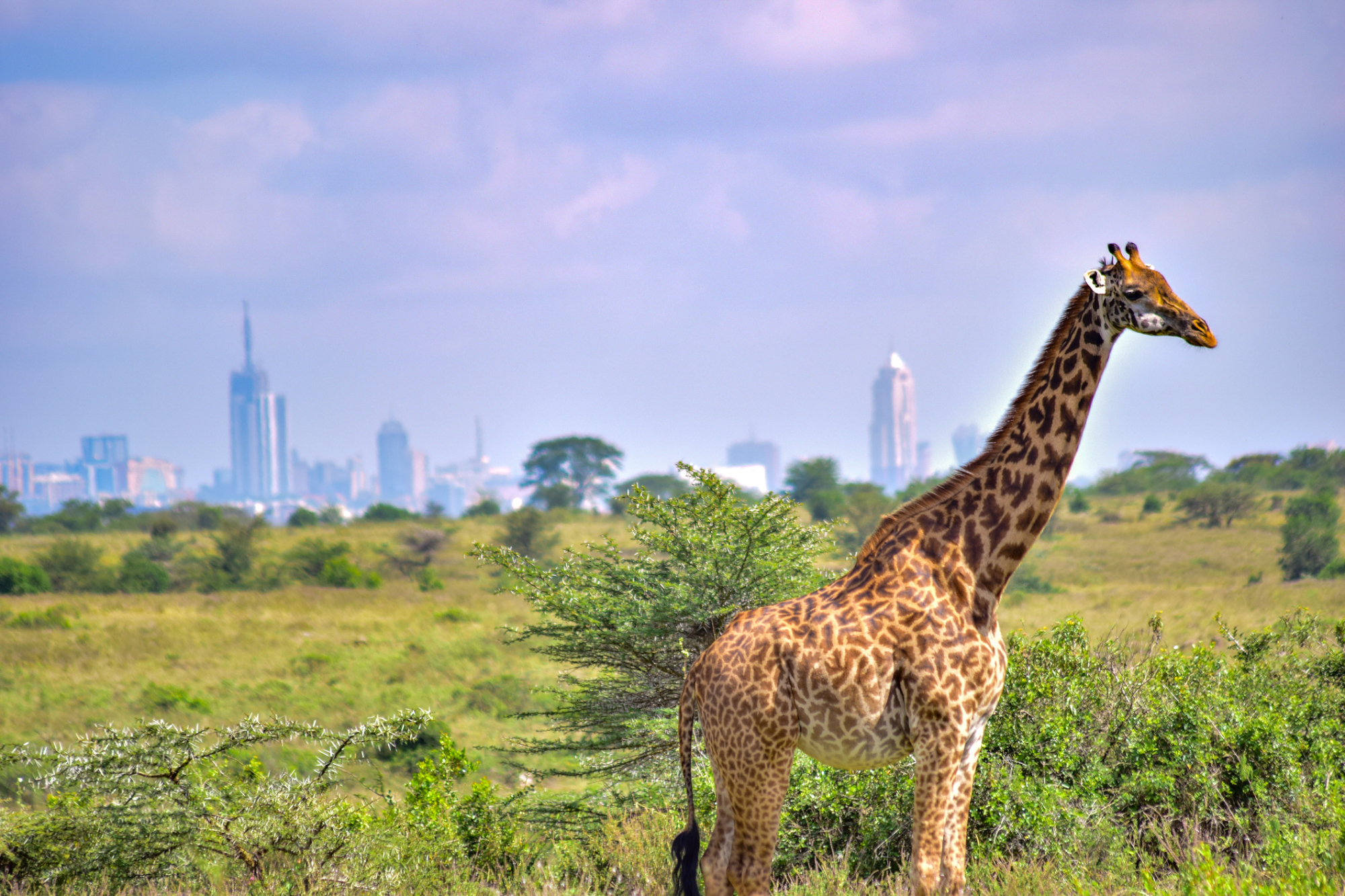
Every day, Sumitomo Corporation Group employees around the world go above and beyond in their daily work across a variety of industries. In “WORLD BIZ+,” we reveal the latest news on Sumitomo Corporation’s global business through the experiences of these employees. In this first installment, the spotlight is on Africa, where we have been doing business for about 70 years, since 1954. Let’s look at the history of Sumitomo Corporation’s business in Africa and the work of our employees to promote social and economic development in the region.
-
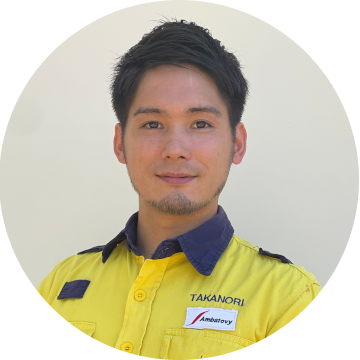
Nickel & Cobalt Business Dept.
Takanori Kobayashi
Since having joined the company in 2017, Mr. Kobayashi has been involved in the Ambatovy Project, one of the biggest nickel and cobalt production operation in the world. He has been dispatched abroad in Toamasina, Madagascar since July 2021 and is currently on an assignment to Dynatech Madagascar.
-
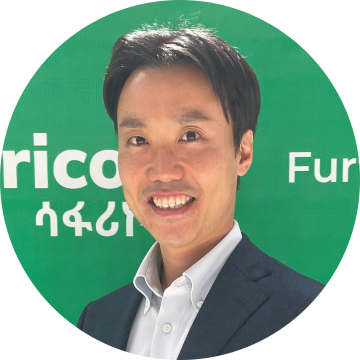
Smart Infrastructure Business Dept.No.2
Ippei Mitsui
Mr. Mitsui joined the company in 2007. After working in web service business development, the telecommunication business in Mongolia and digital business investment in Southeast Asia, he began leading the Ethiopian telecommunications bidding project as Sumitomo Corporation’s key representative since 2019. He has been dispatched abroad in Addis Ababa, Ethiopia since September 2021, and is currently on temporary assignment to Safaricom Ethiopia.

-
[+History]
Over 100 Members Nurturing the Seeds of Business in 11 Countries -
[+Business]
Sustainable Projects Realized Through Trust Between Multinational Employees -
[+Business]
Building Social Infrastructure in Ethiopia Engenders a Keen Sense of Involvement in Nation-Building -
[+Future]
Learning and Growing Together With Africa Through Problem-Solving Businesses
[+History]
Over 100 Members Nurturing the Seeds of Business in 11 Countries
The year 1960 was a memorable year, as 17 African countries gained independence from their former colonial rulers. Sumitomo Corporation recognized the potential inherent in Africa even before that and established its first outpost in Cairo, Egypt in 1954. Since then, 118 Sumitomo Corporation employees at 11 bases in 11 countries have been working to solve social issues in rapidly developing Africa while establishing roots in their respective local communities.
In the past, we focused mainly on trade in mineral resources, automobiles, chemicals, food products and woodchips. Through the 2000s, we expanded our operations in the resources sector, investing in an Iron and Steel Making Raw Materials Company in South Africa and taking part in the Ambatovy Project in Madagascar. In the 2010s, we entered the infrastructure sector, including a wind power generation project in South Africa and a power generation project in Ghana. In recent years, we have begun to engage in consumer businesses that directly engage the people of Africa. The first project we worked on involved our participation in Ethiopia’s integrated telecommunications industry, as the fourth pillar of our business.

[+Business]
Sustainable Projects Realized Through Trust Between Multinational Employees
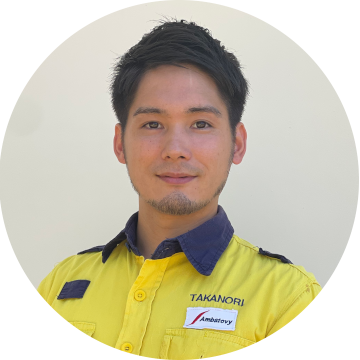
Since I joined Sumitomo Corporation, I’ve been involved in the Ambatovy Project in Madagascar, which is one of the world’s largest nickel and cobalt production project and involves integrated operation from ore mining to refining to high-grade metal. Until June 2021, I was working at Tokyo head office and in charge of overall operations, budget planning, investment and financing practices, and support for Ambatovy’s financial modeling. I was then dispatched to the project site in Madagascar in July 2021. I now mainly in charge of management of cash flow, finance and operating insurance arrangement.
In this project, nickel ore mined in the Mulamanga district, about 70–80 km from the capital of Madagascar, is transported through a 220 km pipeline to the processing plant located in the costal port city of Toamasina, where the ore is then processed and refined to high-grade nickel metal. In addition to the main product of high-grade nickel metal, high-grade cobalt metal and ammonium sulfate are also produced as by-products, that are then sold. Nickel is mainly used to produce stainless steel. Further growth in demand for automotive battery materials is expected in line with the expansion of the worldwide electric vehicle market in recent years. With approximately 30 years remaining life of the mine, this is a long-term project that will supply nickel and cobalt to Japan and the rest of the world over the next quarter-century.
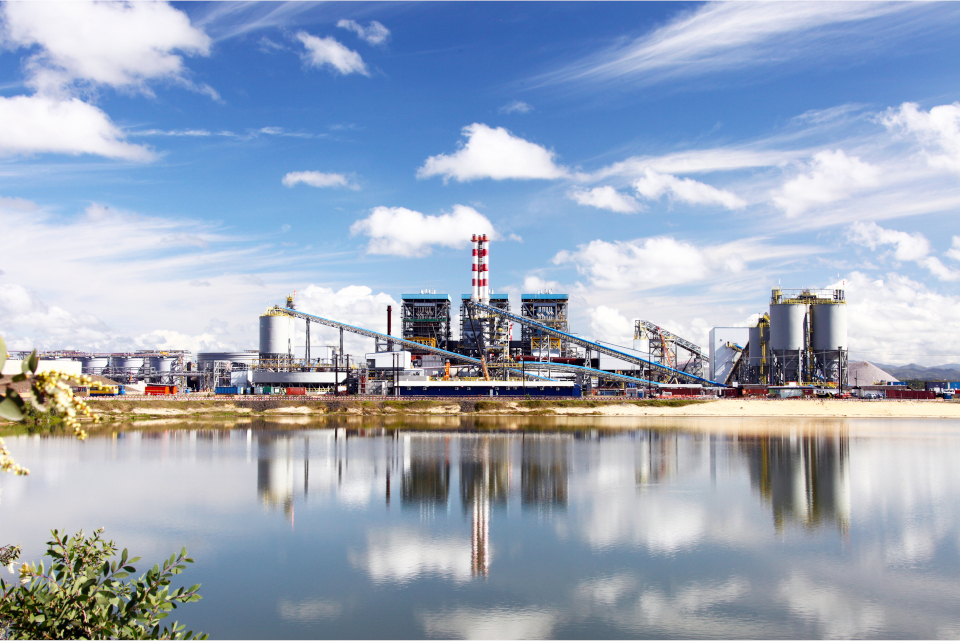
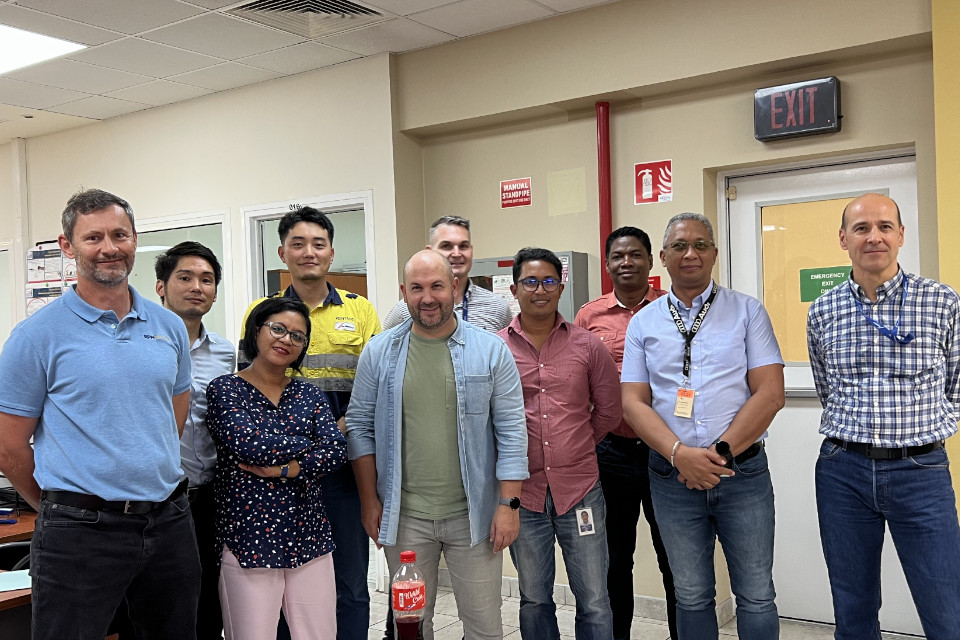
The Ambatovy Project is also a key contributor to the Madagascar economy, with total payments to the government from the project accounting for about 2% of the country’s national budget in 2022. It counts towards approximately 30% of the country’s total exports, making it an important source of foreign currency. As well as creating more than 10,000 jobs, the project provides vocational training and internship programs, mainly for industrial engineers. The project’s processing plant is currently symbolically depicted on Madagascar’s highest denomination banknote. I find it highly rewarding and feel the great responsibility of being involved in this project that symbolizes the country’s economy and hopes for future development.
In order to manage the project sustainably, “localization” constitutes one of the major themes of this project. Thus, it is essential to offer training and development opportunities to Malagasy employees, while sharing skills and know-how and standardizing operations throughout the organization, which we are actively and constantly taking actions on in our work.
In addition to Malagasy, the project consists of multinational expat members from more than 40 countries around the world, and there are a lot of turnover. Moreover, approaches and the way to proceeds works vary based on each individual’s industry affiliation, and, not to mention, their diversed cultural backgrounds, which are not alike when I worked in Tokyo Office. There, we need to make sure to build trust and camaraderie while upholding mutual respect, resulting in a wealth of valuablel experiences that are unique to a diverse workplace. Even though there are a lot of unique challenges at project site and not everything goes as planned, it is essential d to have a mind-set to always keep trying to find a way in challanging environment.
Another main mission of mine here on site is to make sure the local team will be able to function in the project efficiently and independently in the event that eventually I leave here. So, it is one of a point which I have always in mind that I show and share the way how “Sumitomo Person” would work and think, not onlyl knoledges and skills related to works. I also try to maintain open-minded communication to facilitate smooth team building, not only daily communication, but also such as by inviting team members to my home for takoyaki parties on our days off.
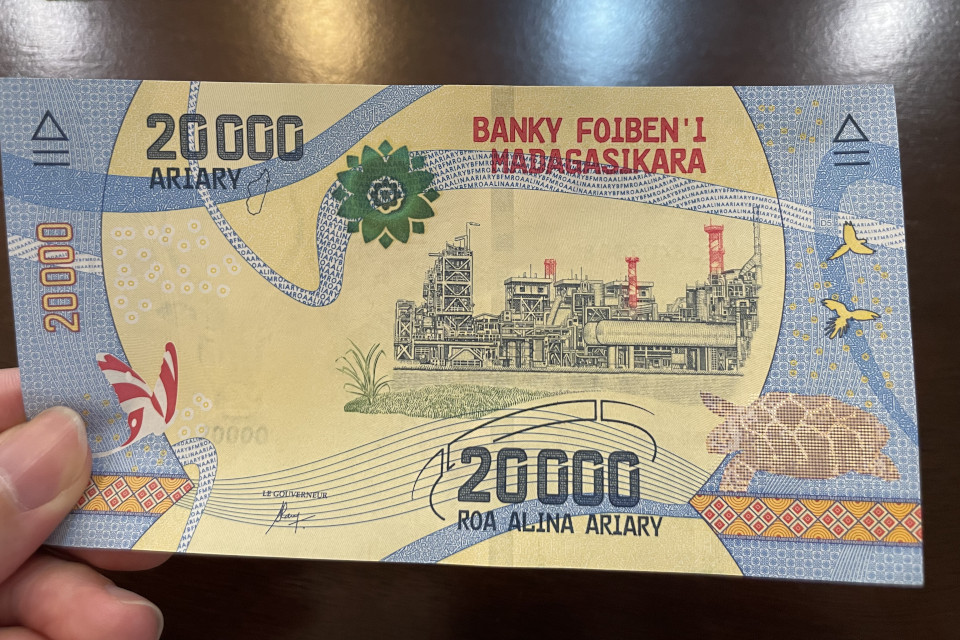
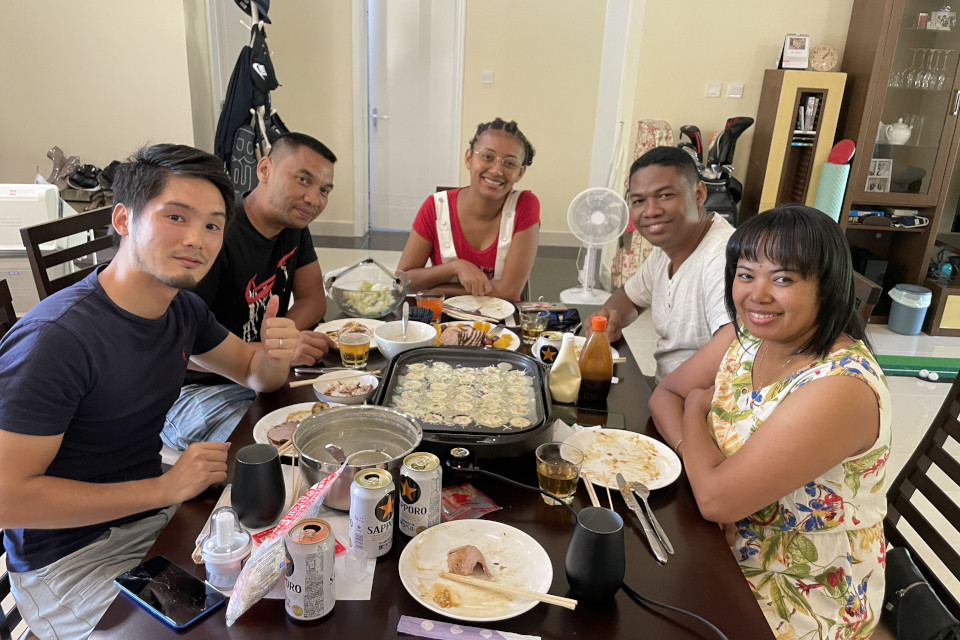
[+Business]
Building Social Infrastructure in Ethiopia Engenders a Keen Sense of Involvement in Nation-Building
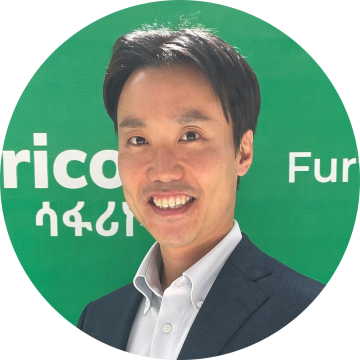
I am currently on temporary assignment to Safaricom Ethiopia, a mobile telecommunications company in Ethiopia, where I am mainly engaged in project management and business development.
Ethiopia is a young and vibrant country with the second largest population in Africa (120 million) and a median age of 18.5 years. Despite its promising market, until now there has been only one state-owned telecommunications company, and the rate of penetration of mobile phone usage has remained low. Seeing this, Sumitomo Corporation dispatched employees to Ethiopia in 2019 to conduct market research on how mobile phones are used in Ethiopia.
Subsequently, Ethiopia decided to open up its telecommunications market to foreign companies, and Sumitomo Corporation and the Vodafone Group, a major U.K. telecommunications company, began a joint venture to develop a mobile telecommunications service in the country. After winning the bid, we launched the business from scratch, and the service was officially started operation in October 2022. By the end of December 2023, more than 9 million people had subscribed to the service, and 900 local employees had been hired. Furthermore, the mobile payment service “M-PESA” provided by Safaricom has made a strong start with the number of users exceeding 3.1 million in just over 4 month after the service was launched in August 2023.
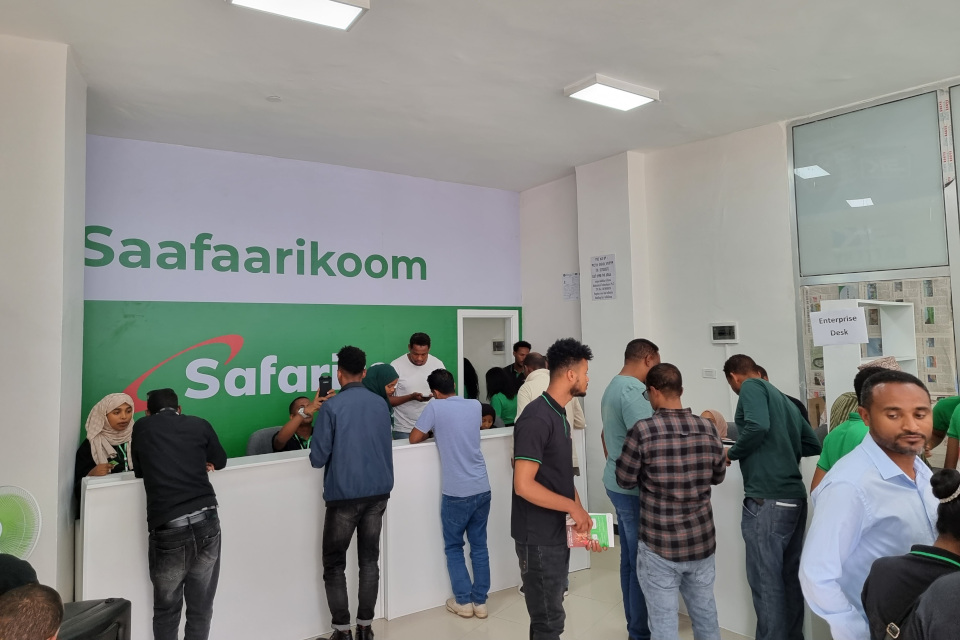
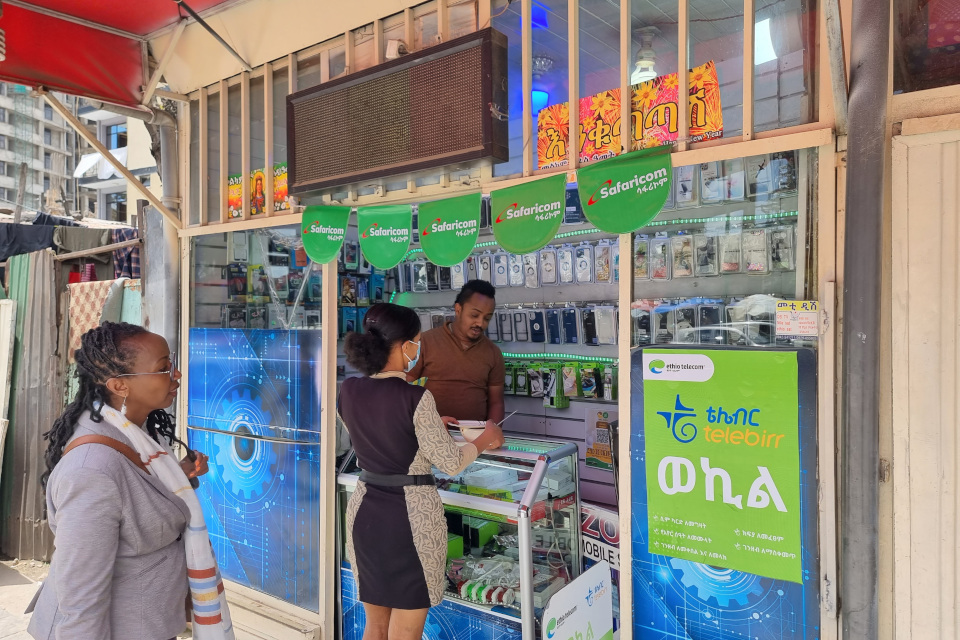
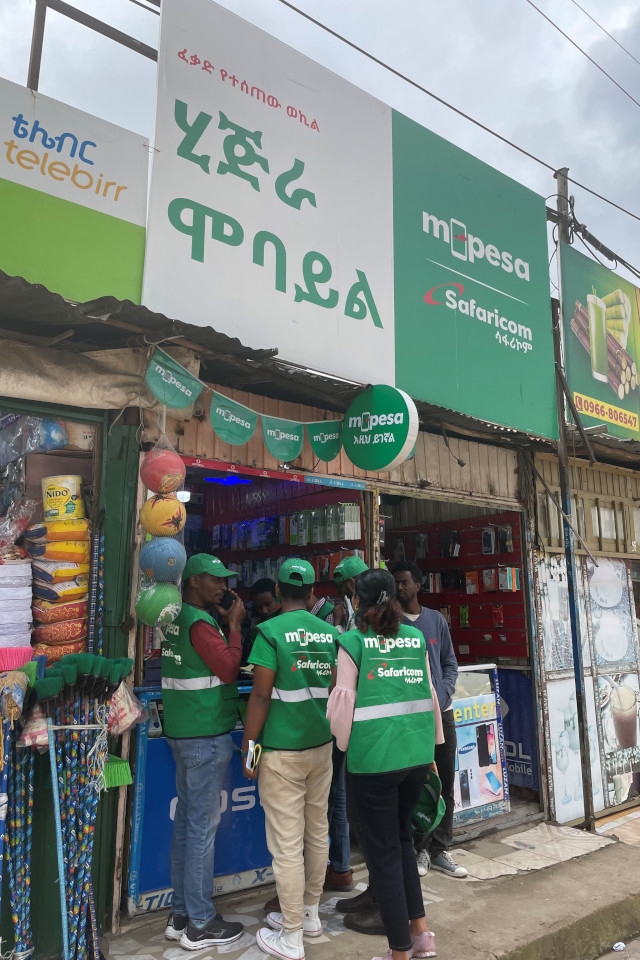
Living and working in Ethiopia, I often see that the nation is still developing, with problems concerning infrastructure, security and sanitation, as well as high costs due to a shortage of supplies. The level of education and medical treatment is also wanting. That is why we are always asking ourselves how we can contribute to the country by building social infrastructure in the form of telecommunications, thereby expanding the possibilities of the country.
Since the launch of Safaricom’s services, healthy competition has become the norm in the telecommunications industry, which was previously a monopoly, and services have improved across the board. International organizations and other industries are paying close attention to Safaricom’s services and are considering partnerships that will improve the country. As such, I truly feel that we are contributing to national development.
We have launched a consumer service in the form of our mobile telecommunicationsbusiness, and also developed a payment service, among other services. It gives me a great sense of accomplishment to be able to provide products we have created directly to satisfied customers. Moving forward, while expanding our telecommunication and payment services, we hope to use this social infrastructure to develop businesses in areas such as education, medical care and agricultural support, and to work with telecommunication companies, other technology companies and startups in other African and European countries to bring about positive social change while overcoming challenges.
[+Future]
Learning and Growing Together With Africa Through Problem-Solving Businesses
Although people in Africa are becoming more affluent in some areas, they still face many problems, including poverty, food shortages and electricity outages. To address these issues through our businesses, we are promoting digital transformation and working with local governments to develop human resources and create the jobs necessary for nation building.
We will continue working to solve social issues and grow together with Africa by meeting the unique needs of each region through our various businesses and initiatives.
[+Life]
Madagascar, a Sunny Island Country With Unspoiled Nature

I live in a residential area adjacent to a factory. It takes one hour from the capital to the nearest local airport by propeller plane, and teh residential area is 15 km away from there. While developing countries face their own unique challenges, such as water outages and flooding, roads with unmaintained surfaces, sanitation and procurement of supplies, they are also blessed with many good points. There is a beautiful beach right behind the residential area, and you can see many rare animals up close, including the tenrec, which is endemic to Madagascar, chameleons and more. I also love the cheerful and upbeat nature of the Malagasy people, everyone starts dancing the moment music is played!

The beach behind the residential area faces the Indian Ocean
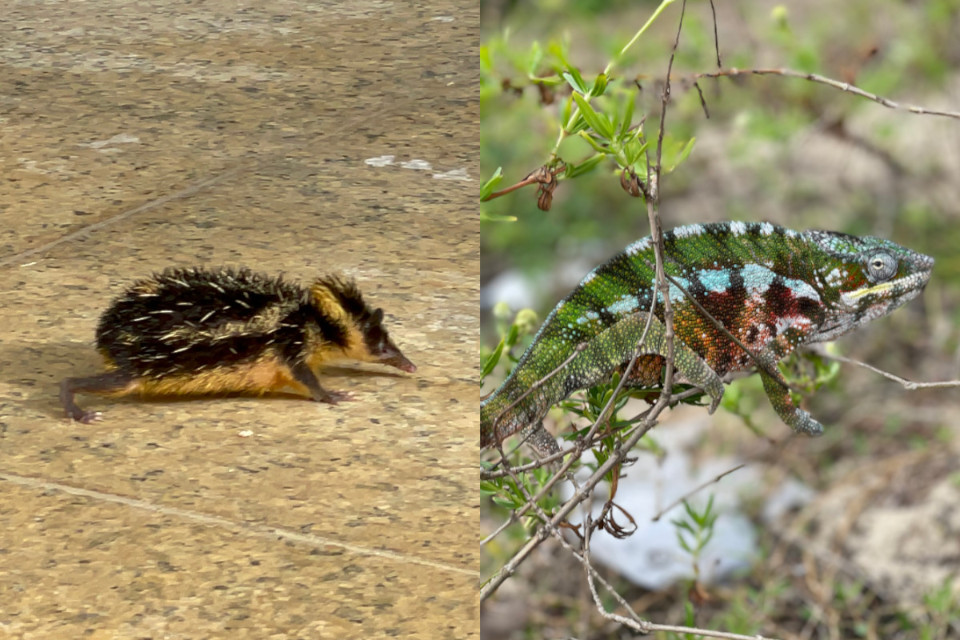
Madagascar is home to tenrecs (left) and chameleons
[+Life]
Enjoyable Days off in Addis Ababa, a City at 2,400 Meters Above Sea Level

I live in Addis Ababa, a city situated at about 2,400 m above sea level. Here, it is always spring, and I enjoy playing golf and tennis on sunny days during the dry season that spans October to May. As the city is considered the capital of Africa and many foreigners working for embassies and international organizations live here, there is an outstanding international school. Children often invite their classmates to home parties, and this gives me a great opportunity to interact with Ethiopians as well as people from many other countries. Addis Ababa’s hub airport provides easy access to other African and the Middle East countries, and travel to surrounding countries is also a delight.
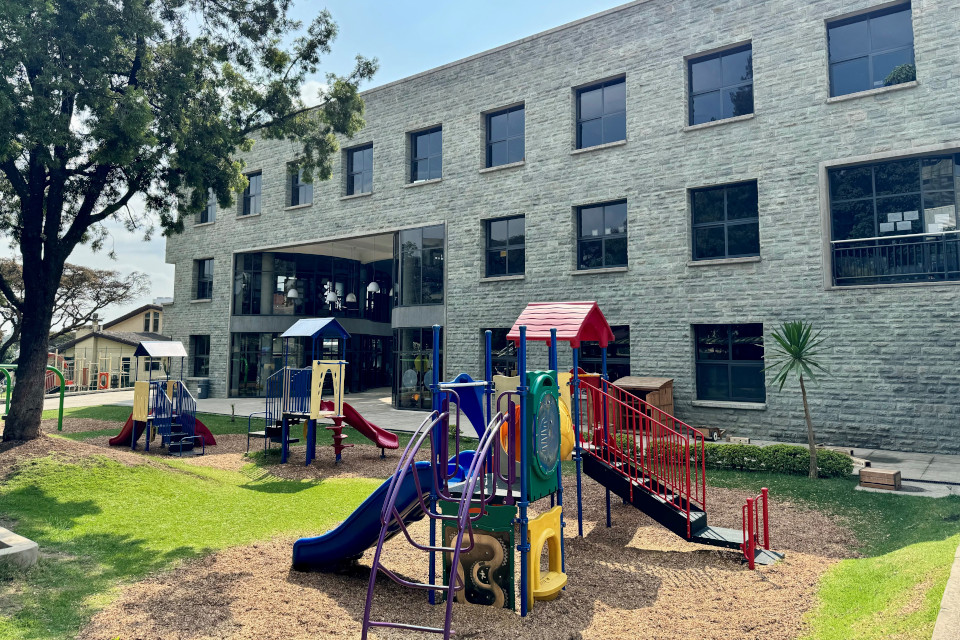
International school with colorful playground equipment
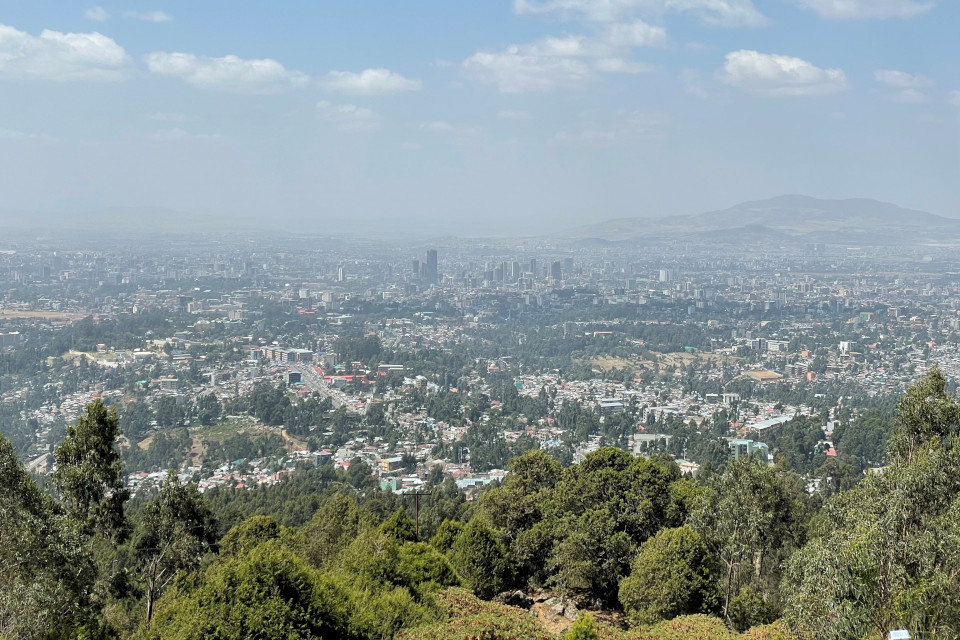
Addis Ababa is one of the highest cities in Africa

